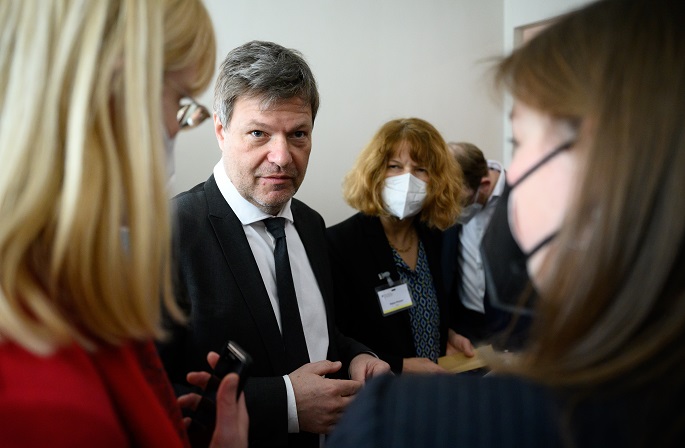Qatar willing to help with 'Putin-free' energy: German minister
Published : 20 Mar 2022, 23:01
Germany and Qatar have agreed upon a long-term energy partnership, a step towards providing Germany with "Putin-free" energy, German Economic Minister Robert Habeck said on Sunday, reported dpa.
Habeck's comments came after a meeting with Qatari Emir Tamim bin Hamad Al Thani, part of a two-nation tour the minister is conducting in light of Russia's invasion of Ukraine and Europe's desire to distance itself from Russia.
"The day has developed a strong dynamic," said Habeck, saying the emir had pledged more support than Germany had ever expected.
"Although we might still need Russian gas this year, in the future it won't be so any more. And this is only the start."
Russia has until now provided 55% of Germany's fossil fuel imports. It was in the middle of finalizing an internatonally condemned pipeline from Russia when Moscow began threatening Ukraine. But that has all changed since the February 24 invasion, with Germany looking at any and all options to wean itself off Russian supplies.
However, Habeck has also warned Germans it could take time, which is why Germany has refused to turn off the taps to Russian gas and oil for now.
Following the meeting in Doha, business officials travelling with Habeck - including officials from thyssenkrupp, Bayer, Siemens Energy and RWE - will now work out the details with their Qatari counterparts.
The deal, says Habeck, does not focus solely on liquefied natural gas (LNG) deliveries, but also on developing renewable energy projects and measures promoting energy efficiency, areas where German companies had a lot to offer.
"The path consists of many milestones," said Habeck. It also carries benefits for Qatar, which exports mostly to Asia and has been looking to diversify.
Germany wants to establish its own LNG terminals to build up reception capacity. At present, LNG arrives at terminals in the Netherlands and Belgium, for example, before making its way to Germany.
In the short term, Habeck sees Qatari LNG as a way of securing energy supplies for next winter. In the medium term, it could arrive via LNG terminals now being planned in northern Germany.
In the long term, however, the Green Party politician seeks to achieve Germany's goal of weaning iteslf off fossil fuels entirely, becoming carbon neutral by 2045.
The current plan is risky, since Qatari gas will cost more than Russia's. Then again, given the shifting nature of the war, there is no guarantee Russia won't shut off the taps at some point, leaving Europe scrambling for fuel.
Habeck also has to establish a balance with Qatar, which has been at the centre of complains about human rights violations, mostly regarding its treatment of foreign workers. Habeck has spoken of "shifting" diplomatic grounds in relation to his trip.
Indeed, Qatar has often been portrayed as an international bogeyman of late for what many call deplorable labour conditions, as it rushes to prepare to host the World Cup later this year.
Many of the workers in question come from places like Bangladesh, India, Nepal and Pakistan and tend to work long hours for low pay in bad conditions.
Habeck said he brought the subject up in his talks, adding that Qatar said it was aware of the problems.
His counterparts had noted that Qatar was the first Middle Eastern country to implement a minimum wage and had instituted laws keeping labourers from having to work during the hottest part of the day in the desert country.
Habeck was heading to the United Arab Emirates later on Sunday, where he is scheduled to meet with ministers on Monday. Those talks should focus on "green" hydrogen, which is produced with renewable energy rather than conventional fossil fuel.
Habeck travelled to Norway on a similar energy diversification mission earlier this week.


